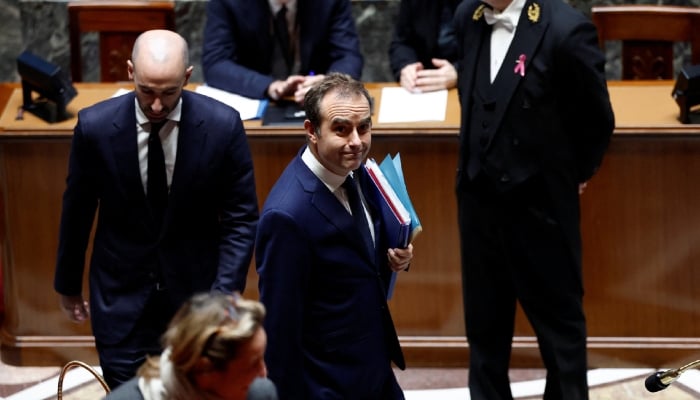
The French Prime Minister Sébastien Lecornu survived two no-confidence votes that were a major threat to his days-old government.
A key ally to President Emmanuel Macron, Lecornu told parliament on Thursday, October 16, that lawmakers must choose to take part in "parliamentary debate" on next year's budget or sink the government and create "political chaos".
In the first no-confidence motion, presented by the hard-left France Unbowed, a total of 271 lawmakers voted in favour, just 18 votes short of the 289 votes needed to bring down the government.
The far-right National Rally (RN) tabled the second no-confidence motion and secured 144 votes.
Lecornu's government survival is mainly credited to the Socialist Party leadership, which did not join France Unbowed's vote after the prime minister offered to suspend the pension reform until after the 2027 presidential election.
By putting the pension reform on hold, the 39-year-old would be putting a roadblock on one of Macron's main economic legacies at a time when France's public finances are in an unstable state.
If Lecornu had lost either vote, he and his ministers would have had to immediately resign, and Macron would have come under huge pressure to call a snap parliamentary election, plunging France deeper into crisis.
However, despite the seemingly positive outcome of Thursday's votes, Lecornu still faces weeks of arduous negotiations in parliament over passing a slimmed-down 2026 budget, during which he could be toppled at any point.
Reforming France's generous pension system has been political kryptonite ever since Socialist President Francois Mitterrand cut the retirement age to 60 from 65 in 1982.
Macron's reform raised the statutory retirement age from 62 to 64 by 2030, which is the same as any other EU states; however, it does take away a social benefit beloved by the left.












